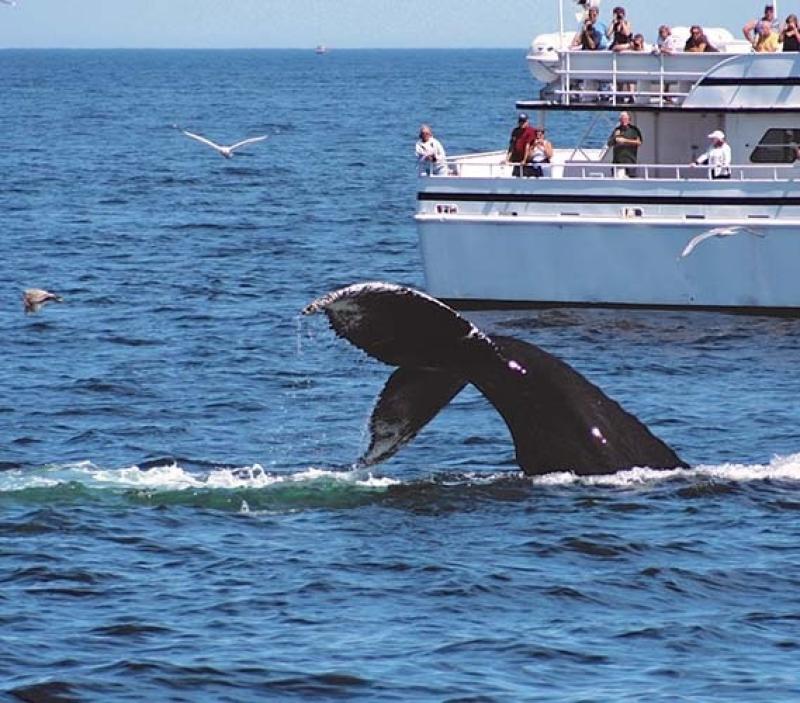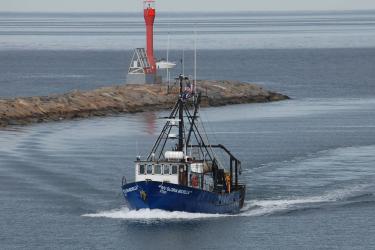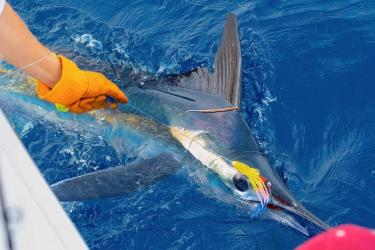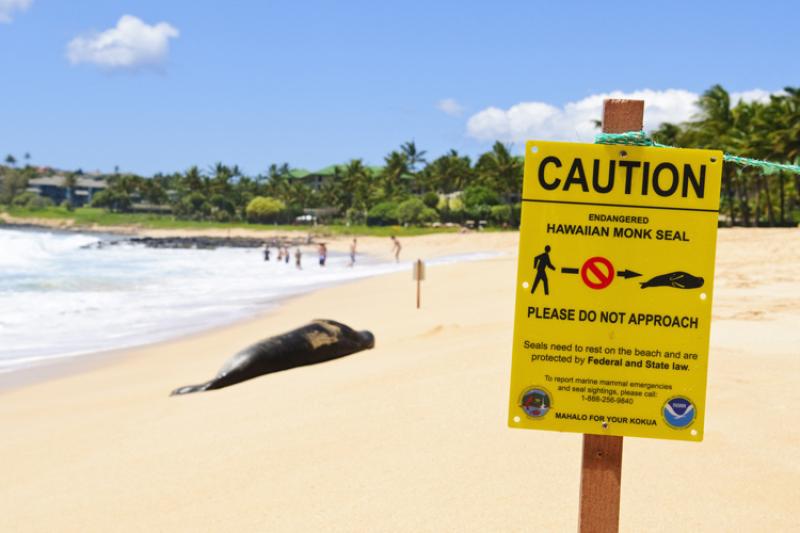Whale watching companies across New England, the mid-Atlantic, and Alaska are continuing to join and participate in the Whale SENSE program. Two new nonprofit partners are joining to support the growing program in the Atlantic: including the Audubon Society of Rhode Island and the New Bedford Whaling Museum.
While they may seem like unlikely partners in a program that promotes responsible whale watching practices and ocean stewardship, the missions of these organizations are tied to both. These organizations are active in outreach aimed at both the boating and sailing community. Both have worked together for more than a decade on education and advocacy projects as leaders of the Education Committee of the North Atlantic Right Whale Consortium. They are also partners with NOAA Fisheries, Whale and Dolphin Conservation, and Stellwagen Bank National Marine Sanctuary in the See a Spout? Watch Out! Program. The program educates recreational boaters on operational practices that keeps boaters, their vessels, and whales safe from accidental collisions.
Rhode Island is only 37 miles wide and 48 miles long but has a shoreline that runs 400 miles along Narragansett Bay in the Atlantic Ocean. The Audubon Society of Rhode Island supports the conservation of ocean resources by protecting habitats for birds and other wildlife that are connected to the ocean. They educate the public at their nature center and aquarium, wildlife refuges, and online.
The New Bedford Whaling Museum is anchored in New Bedford, a town rich with maritime history and culture, of which whaling was once the major economic driver. Today, the museum preserves the region’s maritime heritage and culture—and serves as an unexpected champion for whale preservation. The museum shares stories of people, the region, and the international seaport, highlighting the complex issues that shaped the past, remain critical today, and inform a sustainable future. This perspective is important in understanding how human activity has influenced whale populations and supporting efforts to help conserve these populations now.
Whale SENSE partners implement and support the program by:
- Developing educational materials
- Promoting the program on social media and with visitors to their facilities
- Acting as a point of contact for participating Whale SENSE companies
- Conducting onboard evaluations
About the Whale SENSE Program
Whale SENSE is a voluntary education and recognition program offered to commercial whale watching companies. Since 2009, the program has trained thousands of whale watch staff who have subsequently educated hundreds of thousands of passengers about whales and ocean conservation during trips and through social media. This has increased awareness within and outside of the whale watching fleet of the importance of following whale watching guidelines and viewing whales responsibly.
All companies enrolled in the Whale SENSE program volunteer to participate in annual training for all naturalists and captains and complete a stewardship project. They also agree that their company’s behavior around whales be evaluated by program staff.
Companies enrolled can be found in seven states: Maine, Massachusetts, New York, New Jersey, Delaware, Virginia, and Alaska.
Whale SENSE vessels have also reported whale entanglements, including those of endangered North Atlantic right whales. On several occasions, vessels have stayed with whales in distress until help could arrive, providing a critical service, since finding whales in the ocean can be a challenge.
Choose Whale SENSE
Prospective whale watchers looking to choose an operator committed to responsible wildlife viewing practices and ocean stewardship can choose a company participating in the Whale SENSE program!
Follow the Whale SENSE Facebook page or visit the Whale SENSE website to:
- Pick a Whale SENSE company for your next whale watching adventure
- Learn more about what it takes to have Whale SENSE
- Discover more about whales in the Atlantic and Alaska
- Become a Whale SENSE operator
- Tell others about Whale SENSE







